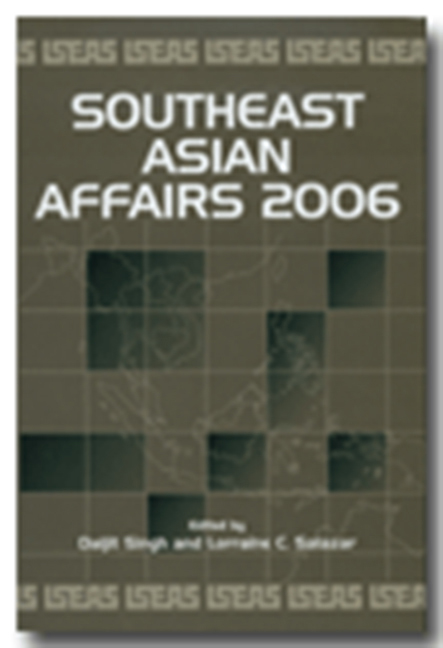Malaysia: The Challenge of Money Politics and Religious Activism
from Malaysia
Published online by Cambridge University Press: 21 October 2015
Summary
1. Umno, Money Politics, And The Malay Agenda
In January 2005, Prime Minister Abdullah Badawi began his fifteenth month in office as leader of this multi-ethnic nation of 26 million people, with a raft of issues that remained unsettled since assuming office on 1 November 2003. Abdullah was faced with pressing problems such as money politics, cronyism, budget deficits, glaring failures of several government-linked companies (GLCs), and religious intolerance. On a personal level, 2005 was a particularly difficult year for Abdullah, as his ailing wife Endon Mahmood succumbed to breast cancer in October after battling it for two years.
The United Malays National Organisation (UMNO) General Assembly (19–23 July 2005) furnished the testing ground for Abdullah's leadership style and ability to emerge as a conciliator and problem solver for intra-UMNO politics and the general management of the ruling Barisan Nasional (BN). The BN is a 14-member coalition government in which two ethnic-based parties — the Malaysian Chinese Association (MCA) and the Malaysian Indian Congress (MIC) are senior partners representing numerically significant minorities in the country. The Prime Minister was conscious of the fact that he was not only UMNO President — the political party with 3.4 million Malay members — but was also the Prime Minister of a multiracial country. Abdullah squarely addressed the issue of money politics, which figured largely in the month-long run-up to the General Assembly. In his keynote speech, he remarked: “there can be no pride in winning an election through corrupt means and subsequently accepting money to bribe others”. Adding that it would be a tragedy for the Malays if wealth was used to barter power and power was used to sell out the race, Abdullah stressed that efforts to enhance integrity and eradicate corruption would cover both the public and private sectors, including statutory agencies and GLCs.
The premier was evidently referring, in his speech, to the recent suspension of Isa Ahmad, the UMNO Vice-President and Federal Territories Minister, who secured the largest number of votes for the three vice-presidential posts in the September 2004 party elections.
- Type
- Chapter
- Information
- Southeast Asian Affairs 2006 , pp. 151 - 171Publisher: ISEAS–Yusof Ishak InstitutePrint publication year: 2006

